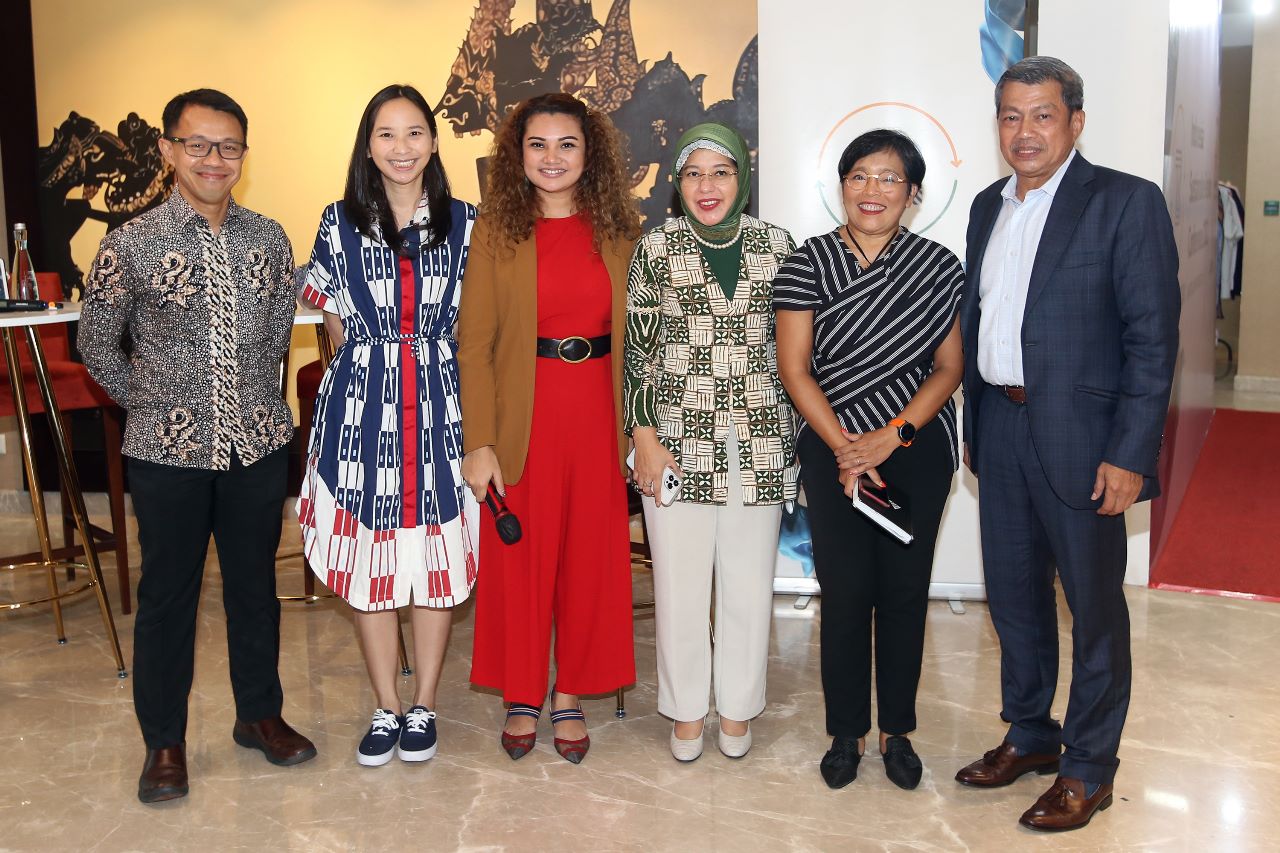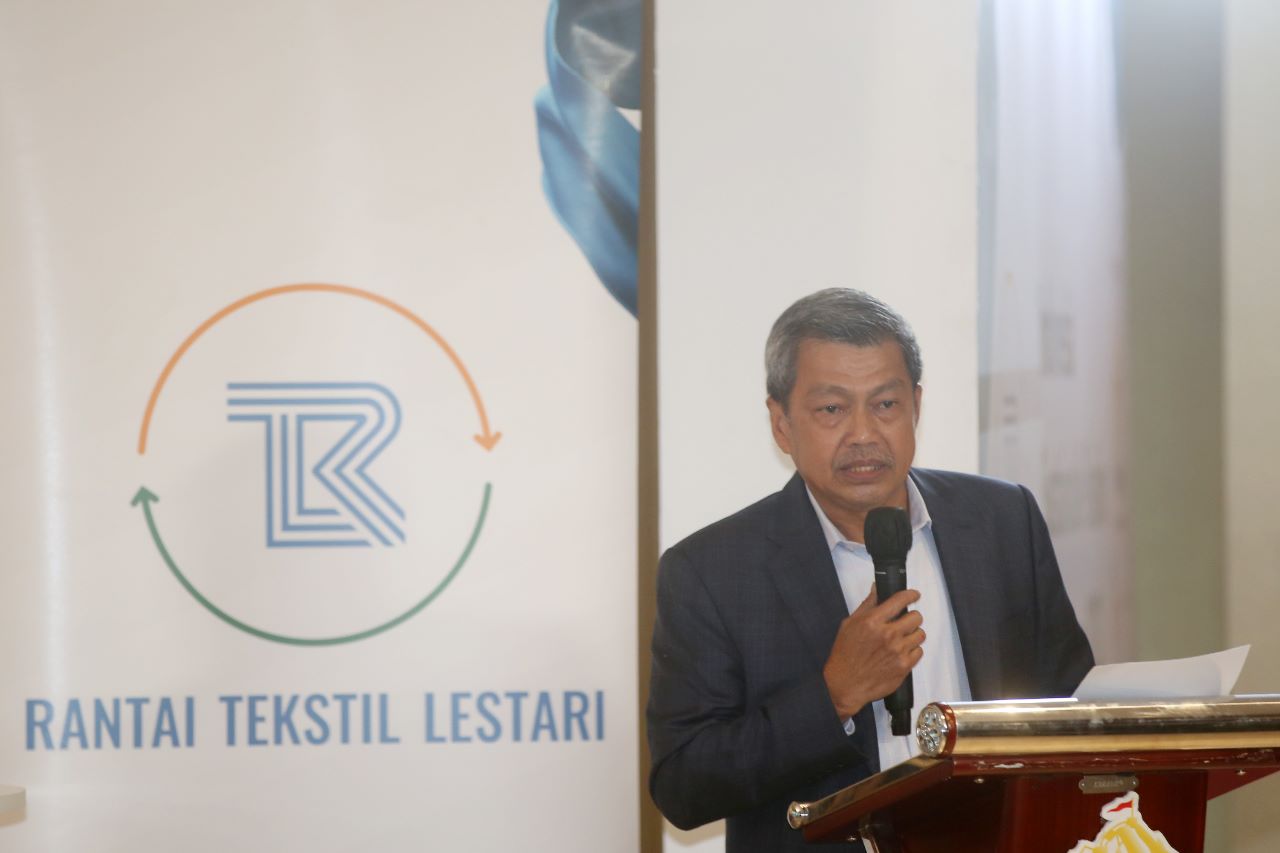Knitting local eco-friendly products

-
Date:
13 Mar 2023 -
Author:
KEHATI
In light of environmental pollution, the Indonesian textile sector frequently draws criticism from both domestic and foreign sources. Some Indonesian textile and fashion businesses that are working together to create a sustainable textile sector are concerned about this.
This is significant since there is a sizable domestic and international market for Indonesian textiles. Furthermore, especially in the world’s major fashion centers, people are becoming more and more aware of the value of ecologically friendly textile and garment products.
“Sustainability and business should coexist. A business strategy that creates long-term value is one that prioritizes sustainability. In addition, Indonesia, like most other nations, has a roadmap for the SDGs (Sustainable Development Goals). According to Basrie Kamba, Chairperson of Rantai Tekstil Lestari (RTL), “for the sake of their own long-term sustainability, business communities should help accomplish the 2030 target”.

Basrie Kamba
Numerous textile companies in Indonesia came to an agreement to form the Rantai Tekstil Lestari (RTL) forum, which was formally established on September 9, 2021. This decision was made in response to the growing consumer and global market awareness as well as the increasingly strict regulations on fashion products, both in terms of raw materials and the manufacturing process.
The existence of this nonprofit organization is to raise industry, consumer, designer, academic, and other stakeholder awareness of the significance of circular and sustainable textiles and textile products.
“Every industry will struggle to grow if they carry on as they always have. Despite the fact that banking has long since adopted sustainable finance, Basrie said that it also prioritizes environmental, social, and good governance issues. Also, laws and regulations governing textile and apparel from different industrialized nations are becoming more stringent in favor of circularity and sustainable fashion.
KEHATI and Yayasan Inisiatif Dagang Hijau (Green Trade Initiative Foundation) are among the nine RTL initiators, together with Clothes Apparel Group, H&M Group, PT Asia Pasifik Fibers Tbk, PT Asia Pacific Rayon, PT Pan Brothers Tbk, PT Sri Rejeki Isman Tbk, and PT South Pacific Viscose Lenzing.
Implementing Sustainability Pattern.
RTL presently has 48 members, including 27 individuals, 1 institution, 2 brands, 4 CSOs, and 14 companies. Together, they collaborate with the neighborhood, businesses, the government, and non-governmental organizations to present the textile sector and its sustainability facets as a necessary component in addressing the rising demand for apparel.
The Lead Coordinator of RTL, Harmini Simanungkalit, stated that through various kinds of cooperation and engagement with the textile industry, associated groups, and other possible partners from central to regional, RTL would continue to cover all of Indonesia in the present and the future.
The company’s responsibility in relation to sustainability, which has numerous components, is to realize the shift to zero-emission energy, traceability of raw materials, labor, and other issues in its supply chain. “Yet, if we go back in time, our predecessors introduced sustainable characteristics to the behavior of national textiles. environmentally sustainable ancestry, such as the manufacture of batik fabrics with double-sided patterns and natural dyeing techniques using fruit and wood. There are also silk-based fashion items available”, Basrie said.
Basrie claims that Indonesian textile industry players encounter an array of difficulties. One of them is dealing with competition from imported goods that are being sold at lower cost. On the other hand, investment in the textile industry sector is not much in demand. Several businesspeople have shifted their focus to the real estate market as a result of the textile industry’s significant issues.
The business actors who joined RTL continue to work to create goods that use sustainable processes despite facing many obstacles (traceable, environmentally friendly, transformation towards renewable energy). They create networks with academics, NGOs, and consumers so they may create a sustainable supply chain from upstream to downstream.
RTL continues to push the government through this network to at the very least create a road plan so that locally produced sustainable goods are prepared for worldwide competition. The value of textile exports from Indonesia is estimated by the Ministry of Industry Report to be close to 13–14 billion dollars annually.
The high value of textile exports should contribute to ensuring sustainability.
“The government needs to quickly develop a road map as a measure of responsibility to the global market if local products are to exist in that market,” said Basrie.
A balance between an environmentally friendly outlook and market needs is required to realize the establishment of a sustainable textile sector. Moreover, textile product prices must remain competitive. Although profit margins can still be relatively large through efficiency, particularly in terms of raw materials and energy, Basrie claims that not all sustainable textile goods are more expensive.
According to Basrie, fashion businesses need to realize that they must now take environmental impact into account while developing new designs. The capacity of the textile and fashion industries to preserve their appeal by constantly being able to adapt to market fashion trends gives RTL confidence that they will be able to develop sustainable textile products without losing customers. Designers continue to promote both seasonal fashion trends and environmentally friendly practices.
“We facilitate cooperation among participants in the fashion sector and other associated industries by promoting ethical conduct. We acquire skills and knowledge related to ethical behavior. Also, we work with a number of international partners,” said Basrie.
Another problem that requires addressing is the rise in fashion waste caused by Indonesian consumers’ shopping habits. Communities must be aware of post-use components (conditions after not using them). Thus, it is crucial to enhance the learning process to implement ethical and sustainable practices, starting with business, consumers, academia, and so forth.
Although it varies by nation, certification for sustainable products is a requirement on a global scale. Depending on the domestic situation and the setting, some are optional and some are required. a pledge to meet sustainability goals by 2030 in accordance with commitments made by all UN members. The issue is that there isn’t currently a government road plan for sustainable textiles.
RTL needs a road map with information base about energy saving. It is challenging to rely solely on the private sector because there are many areas where they are unable to take the place of the government. Seven years should be adequate if everyone involved is committed to it. APR 2030 is a sustainability road map created by a textile producer Asia Pacific Rayon as a form of public commitment, among other businesses.
